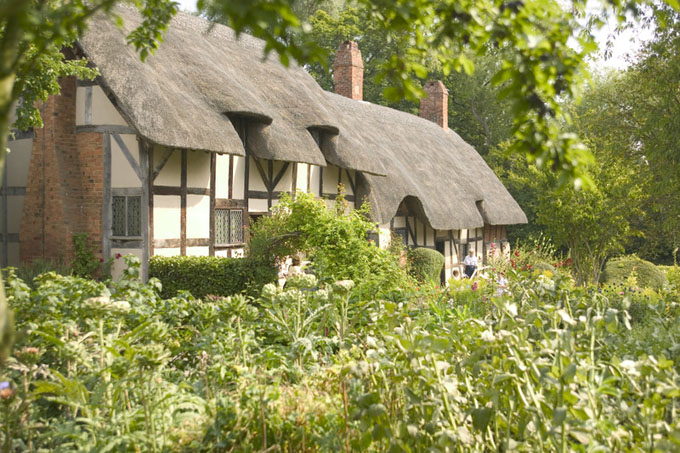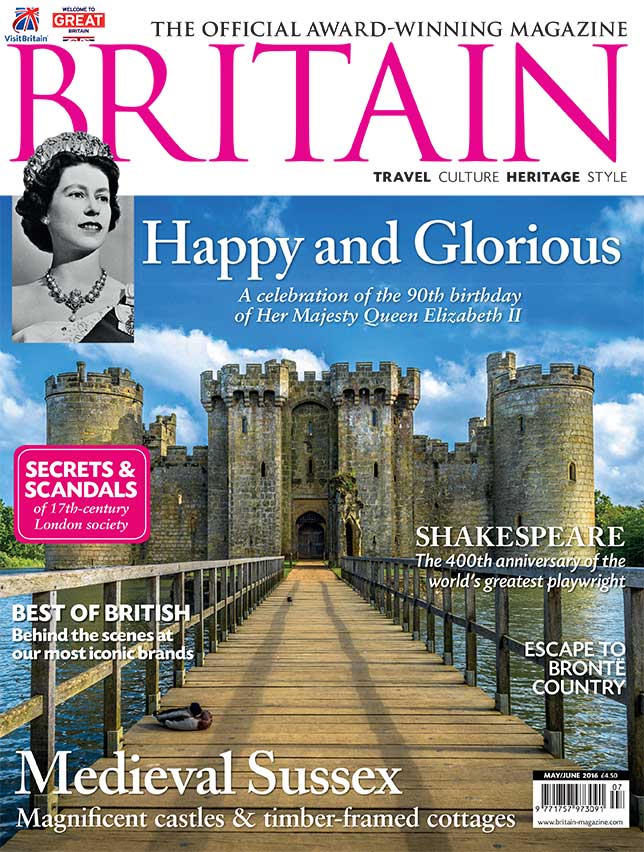Melita Thomas explores one of the most famous Tudor of them all, the Bard of Avon, William Shakespeare
William Shakespeare is one of the most famous men in British, perhaps Western, history. The author, alone or with collaborators, of some 40 plays, two narrative poems and 154 sonnets, his witty and pithy phrases are still on every English speaker’s lips today.
Despite this contribution to the culture of his country and the wider Anglophone world, Shakespeare’s own life is shadowy. There are no personal letters or records of any direct speech or opinions – we are left with what we can infer from his plays, and the official documents that chart his baptism, marriage, children and business dealings.
So little is known about Shakespeare the man, that it has been postulated that the name was a pseudonym, adopted by a high-ranking gentleman to hide his money-making career as a playwright. This idea has not found much traction with Shakespearian academics, so it is probably safe to assume that the playwright was the man from Stratford-upon-Avon, Warwickshire, baptised at Holy Trinity Church on 26 April 1564.
Shakespeare was the oldest son in a family of eight born to John Shakespeare and his wife, Mary Arden. Shakespeare senior was a glover and, at the time of the poet’s birth, a respectable merchant in Stratford, although he later fell into financial difficulties.
The Stratford grammar school is the place where Shakespeare is most likely to have studied – he would have learnt to read and write in English and Latin, as well as studying mathematics, history, perhaps rhetoric, logic, and a smattering of Greek. He would also have been taught the Protestant religion laid down in the 1559 Act of Uniformity, although it has been suggested that his plays hint at a secret Catholic faith.

The first definite record of Shakespeare after his baptism, is the grant of a licence in November 1582 for him to marry with only one, rather than three, readings of the banns. The licence was obtained by the bride, Anne Hathaway’s, connections and Anne’s delivery of a daughter, Susanna, the following May, suggests some haste! Nevertheless, we should not assume Shakespeare was an unwilling husband, even though he was very young by the standards of the time – it was not uncommon for 16th-century brides to be pregnant.
Two years after Susanna, twins were born – Judith and Hamnet. When they were about a year old, Shakespeare left Stratford for London. By 1592, he had established himself as an actor, and that is the year in which it is believed that a first production of one of his plays took place – although this too has been disputed. The play was Henry VI, performed on 3 March at the Rose Theatre.
Just as Shakespeare’s career looked like taking off, disaster struck when the playhouses were closed to prevent the spread of plague. It was not until 1594 that they reopened permanently. During the intervening period, Shakespeare wrote the work for which he was most famous during his own lifetime, the poem Venus and Adonis. It was dedicated to Henry Wriothesley, Earl of Southampton, who has been suggested as the mysterious young man to whom many of Shakespeare’s sonnets were addressed.
By 1594, Shakespeare had become a shareholder, as well as an actor and writer, for The Lord Chamberlain’s Men, a company of actors under the protection of the Queen’s cousin, Lord Hunsdon. Over the following years, the Company performed for the Queen on at least seven occasions, as well in their own Globe Theatre.
In 1596, Shakespeare lost his 11-year-old son, which gave a sad irony to the grant, shortly thereafter, of the right to bear a coat of arms and call himself a ‘gentleman’ – Shakespeare would have no son to inherit this status.

The late 1590s were turbulent years politically: poor harvests, wars with Spain and in Ireland and an ageing monarch beginning to seem out-of-touch, contributed to political unrest. Shakespeare’s play, Richard II, was used by supporters of Southampton’s friend, the Earl of Essex, to foment rebellion. The deposition of a monarch was a dangerous topic, and everyone, including Elizabeth I herself, knew that it was aimed at her. Fortunately, Shakespeare and his colleagues were not blamed by the Queen, although Essex ended up on the block, and Southampton in the Tower.
In 1603, Elizabeth died, and the new king, James, took over The Lord Chamberlain’s Men, renamed The King’s Men. James was even fonder of theatre than Elizabeth, and the Company played in front of him on at least 187 occasions. During the first decade of the century, Shakespeare wrote some of his most famous plays – King Lear, Othello, Macbeth, Antony and Cleopatra, and finally, The Tempest. This was the last play known to have been performed for the King while Shakespeare was a member of the Company, in November 1611.
From the 1590s, Shakespeare had been buying land and houses in Stratford, and it appears that, after 1613, although he still had interests in London, he spent most of his time there.
In late 1615 Shakespeare made his will, dying on 23 April of the following year, aged only 51. His friends mourned him, and published the First Folio (a collection of the majority of his plays) in 1623, but he faded from the national consciousness until the mid-18th century, at which time he was recognised as a man of genius – a reputation that continues unabated today.
Related articles
|
Click here to subscribe! |







 © 2024
© 2024